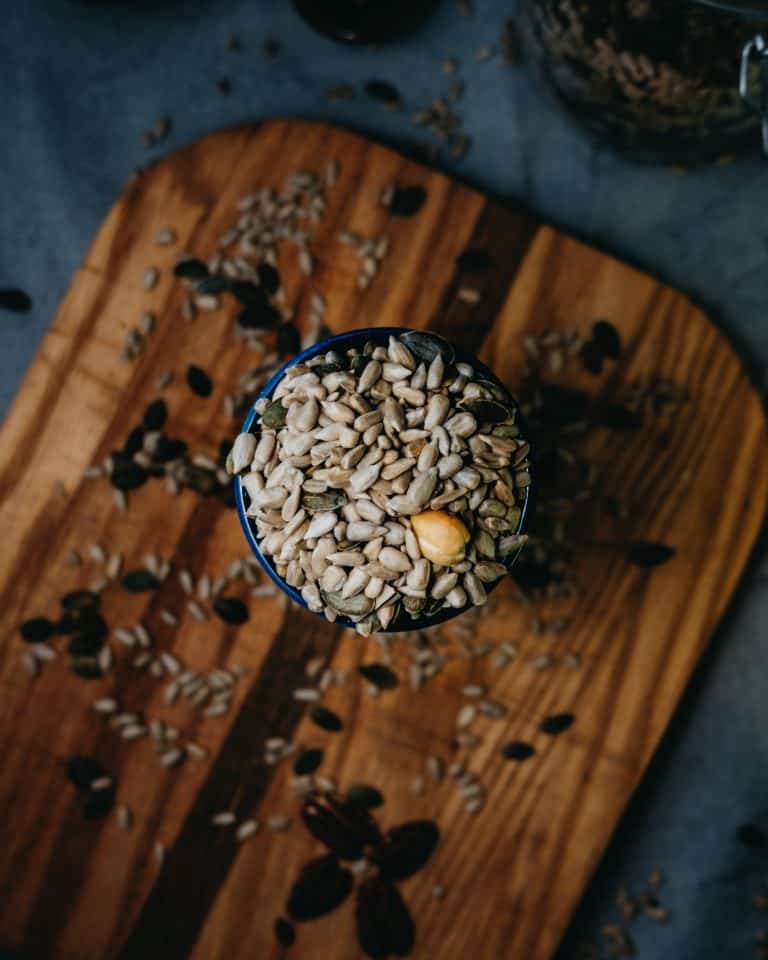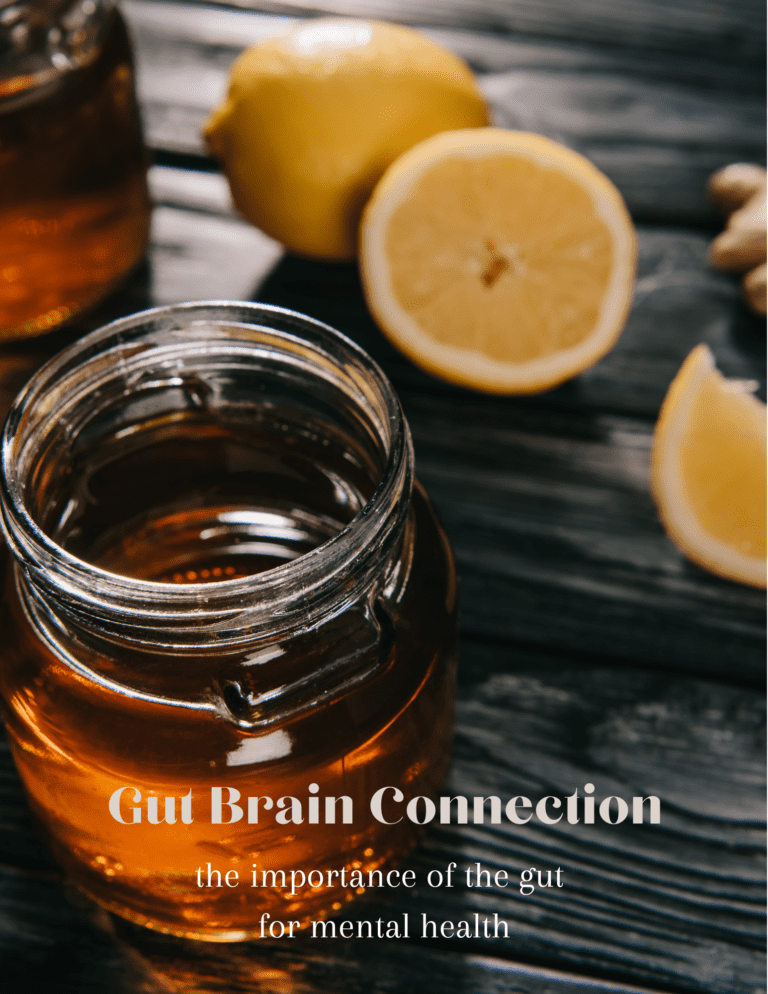Want to know how stress may be decreasing your longevity? Here are 5 ways that stress may be decreasing your longevity and impacting your overall health.

The internet is full of information on things to do and not to do that will improve your health and increase your longevity. However, no one seems to be talking about the stress that comes along with keeping up with all of this information.
Stress is a major contributor to gut health, mental health, and chronic inflammation. Thinking about what we “should” or “shouldn’t” be doing is stressful in itself! Arguably causing more damage than the food we choose to eat.
Not all stress is “bad” stress so I want to clarify that we are talking about every day stressors in this blog post. We are solely discussing the stress that comes from all the conflicting information on the internet that keeps us wondering if we’re doing anything right.
One study discovered that even “perceived stress” can impact bodily inflammation and cortisol levels.
This post will give you 5 ways that information overload stress could be impacting your health and ways to alleviate it so that you aren’t constantly wondering if you are making the right choices.
Stress and Longevity
1. Cortisol and Stress
Cortisol is a hormone that is released in response to stress that is released by the adrenal glands. There are numerous other hormones released during a stress response like epinephrine and norepinephrine, but we’re going to focus on cortisol because it can promote weight gain if chronic.
Cortisol can affect our metabolism by increasing lipolysis (the storage of fat), decreasing our mood, increasing blood pressure, and can also affect our immune system. Basically, it’s not great to have too much cortisol pumping through our veins.
Cortisol production is normal, but we don’t need it 24/7. It’s more important for acute stressful situations, not from the text your boss just sent you.
So how do we learn to chill out and decrease our cortisol production?
- Eating when you feel hungry. Cortisol production increases when we enter a state of hypoglycemia (low blood sugar), which can be prevented by eating when you start to feel hungry, preferably a meal or snack with carbohydrates (1).
- Cutting back on the caffeine if you’re a heavy user. Moderate caffeine consumption is okay, but when we are pumping our bodies with coffee throughout the day, we’re definitely increasing the level of cortisol produced.
- Exercise and practicing whatever keeps you calm regularly. This goes without saying, but if we do something that calms us down, then naturally our cortisol production will slow. Exercise can induce higher cortisol in the moment, but long-term reduces levels.
2. Sleep and Stress
Arguably, one of the most important aspects to health and longevity is quality sleep. Think of sleep like a total body reset for each day. It helps not only regulate almost every system in our body, but it keeps our metabolism in check and our brains functioning properly.
Sleep is vital to longevity. I also believe the amount of sleep needed varies for each person, but after time, you start to know how much sleep you need. Typically, 8-9 hours is the standard. Some people feel better on less and some feel better with more!
How do we get better sleep?
- Put that damn phone away. At least 2 hours before bed. I don’t think I need to go into the benefits of keeping your phone at bay here.
- Don’t eat right before bed. When you eat right before bed, you’re telling your body that you need to digest (aka put in some work). Sleep is the time for the body to shut down, stop working, and recover. When you eat close to bed time, it can not only disrupt your sleep, but can also cause heartburn and slow digestion.
[RELATED POST: Polyunsaturated Fats and Inflammation]
3. Stress and Weight Gain
I touched on this a little bit before when we discussed increased cortisol production. Stress = increased stress hormones, which increases lipolysis. Lipolysis is the storage of fat. This comes from an old survival mechanism when food was scarcer.
In times of high stress, the body would store fat just in case there wouldn’t be a food source available for some time. Guess what, our bodies haven’t changed much in terms of reacting to stress levels.
How do we prevent weight gain?
- Be mindful, but DO NOT stress about the food you are eating. We are not perfect beings and we don’t need to eat perfectly. There is so much unnecessary stress caused by the nutrition industry to “eat healthy” that it is probably making us sicker in the long run.
- Make memories and enjoy your food. Think of eating as an enjoyable experience. Take the time to enjoy every bite, be present with your meal, and engage with those you love.
- Put the phone away when you eat. Distracted eating can lead you to eat much more than you would if you were just eating mindfully.
4. Stress and the Gut Microbiome
Emerging in science is the gut microbiome. Our belly contains millions of microorganisms responsible for a whole host of functions in the body. From our mental health, immune health, and digestion; keeping our microbiome healthy is essential if we want to live a long, healthy life.
So, what does stress have to do with that? Well… stress can cause major changes in the gut believe it or not. Have you ever been so nervous you felt like you were going to poop your pants? There’s a prime example. Since stress releases all of those fight or flight hormones, it signals our gut to do some weird things.
Chronic stress can kind of wreak havoc on our digestive systems if left unchecked. How can we set our microbiome up for success?
- Eat a diet rich in fiber. Start small. Just try to get in one vegetable/fruit a day and work your way up.
- Breathing through your belly. This action stimulates the parasympathetic nervous system and helps calm us down. Your gut bugs will thank you!
- Water of course! Keep them hydrated!
[RELATED POST: Should I be drinking coffee if I want to heal my gut?]
5. Stress and Memory Loss
It’s no surprise that chronic stress can impact our thought process. If we have too much going on at one time, it can be easy to forget even the simplest of tasks on our to do list.
But how does this actually happen? Well some studies have shown that, when under chronic stress, the adrenal cortex releases glucocorticoid hormones, which may have a negative impact on hippocampus function; aka memory. (2)
This is where the term “brain fog” comes into play. A lot of us may feel fuzzy at times or “foggy” and that is likely due to stress, whether internal or external.
So, how can we prevent memory impairment?
- Tackle your stress and take 5-10 minutes out of your day to just sit still.
- Focus on ONE task. A lot of times are brains are on autopilot and just keep going, thinking of all the things we need to tackle. Stop and just focus on one thing.
- Get rid of distractions. Just doing too many things at one time can create unnecessary stress (including social media). Try using the “Do Not Disturb” function on your phone. I have been using it lately and have found it extremely helpful.
- Fish oil; particularly with both EPA and DHA to boost brain health.
Although this may seem like a lot, if you make a few minor changes to tackle stress levels, you can improve your health and increase your longevity. Hopefully this post on 5 ways that stress is decreasing your longevity can help you understand some of the major players of stress and ways to tackle them!
OTHER POSTS YOU MIGHT LIKE:
3 Things you should know about bone broth & collagen
Stress and the Gut: the good, bad, and ugly



